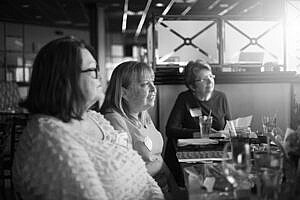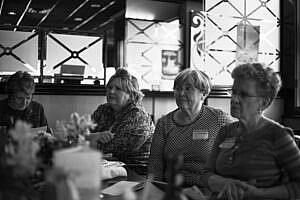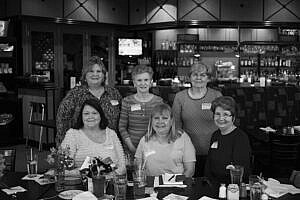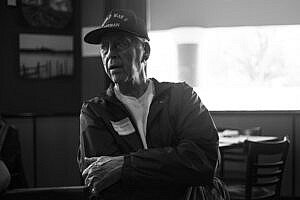We meet the six women near Louisville`s mall of Saint Matthews. The restaurant we meet in is nice. In the background, jazz music is playing and the menu looks quite international. Yet, we choose burgers and Budweiser.
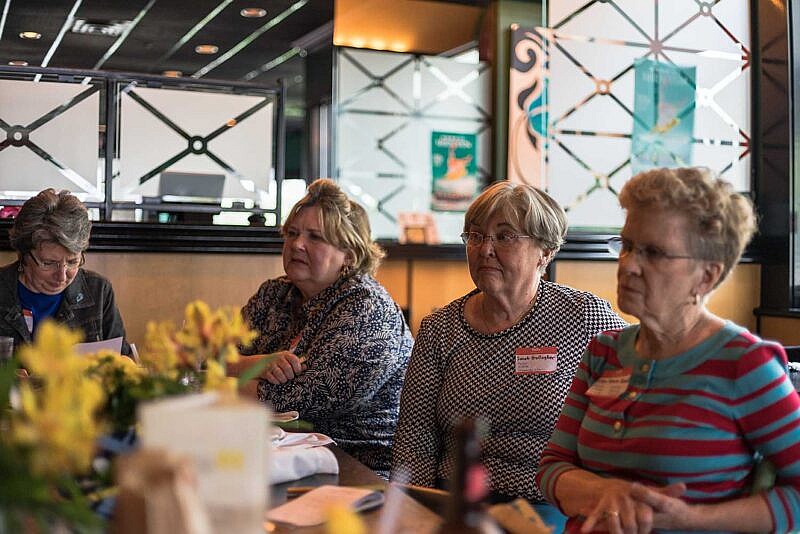
The women tell stories about their forebears and explain how they are related. Polly Kaelin Mackey and Ellen Kaelin Venhoff are sisters, while Sarah Galagher Schoenbaechler is their first cousin, and their common great-grandfather is Karl (Charles) Kaelin (b) who had come to Louisville in 1865. Judy Ann Pollard Kaelin and Karen Kaelin Scully, too, are first cousins. Although, like Polly and Ellen, in their sixties, they belong to the next generation. Karl (Chales) Kaelin is their great-great-grandfather. Of the six, only Joy Kaelin Oechsli Walters is not related to Karl Kaelin. Her great-grandfather was Louis Kaelin who came to Louisville from Einsiedeln in 1879. She is nevertheless related to the other women at the table: A great-aunt of Judy and Karen had married into to the family of Joy Kaelin.
Karl Kaelin was among about a hundred people from Einsiedeln who emigrated in 1865 to the United States after the Civil War had ended. In 1871, he married Josephina Meinrada Schoenbaechler (d). She, too, hailed from Willerzell and had arrived in Louisville in 1866. Judy, a retired school teacher and genealogist, remarked that the pair must have been financially well off from the start since Josepha Meinrada was able to return to Switzerland several times and accompanied young women emigrating to America. One of them was Balbina Fuchs from Willerzell, near Einsiedeln. She had come to Louisville in 1901 and later married August Kaelin (l), Josepha Meinrada’s and Karl Kaelin’s third son.
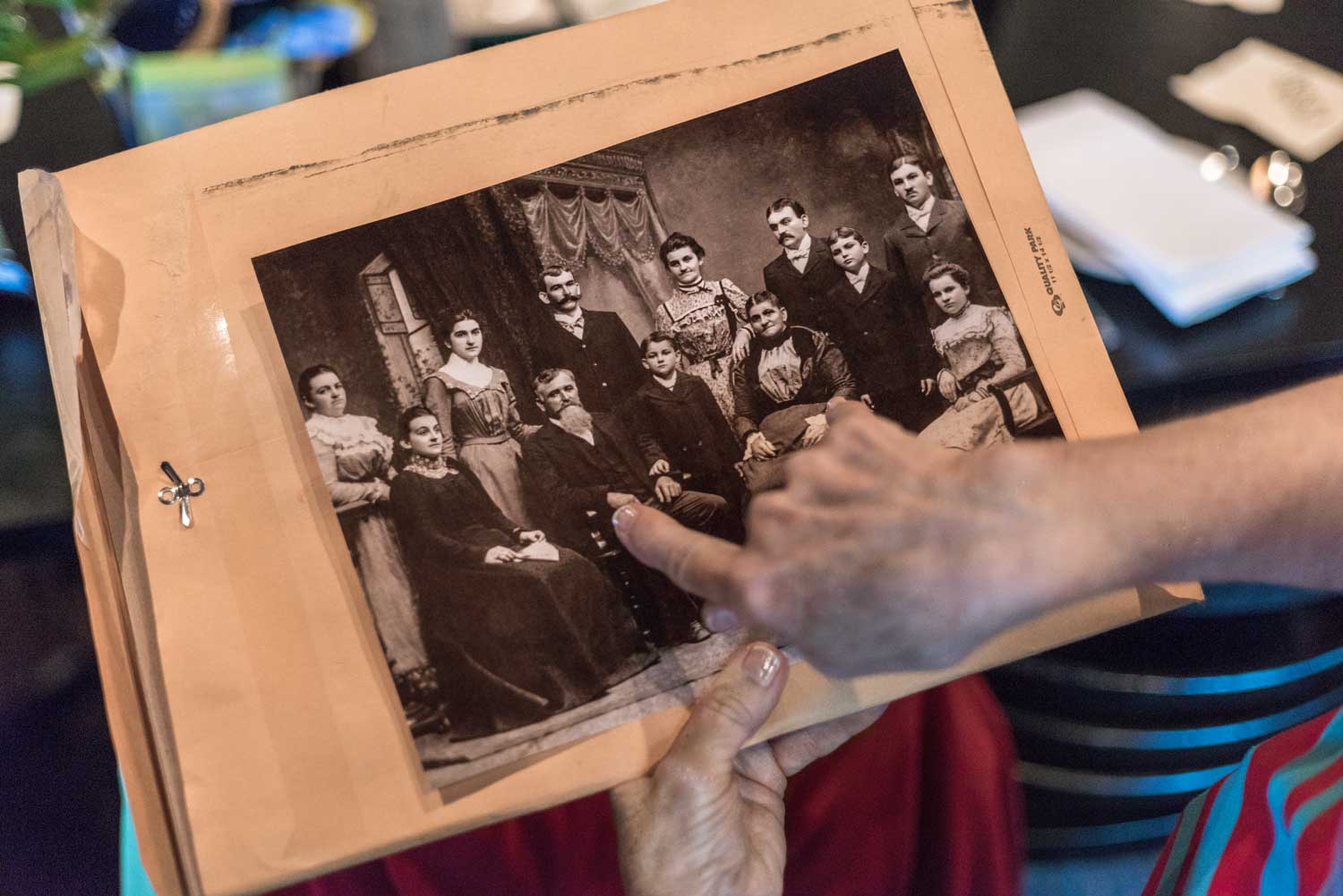
August and Balbina are the grandparents of Sarah, Polly, and Ellen. As the oldest of the group, at 74 years of age, Sarah still fully remembers them. She thought that her grandfather August who was born in 1882 in Louisville had a somewhat idealized view of Einsiedeln:
You can go to heaven or you can go to Einsiedeln, he had often told her when she was a little girl. She remarks that his wife Balbina from Willerzell, who was her grandmother, never learned English despite having lived in America for decades. Why should she? In her time, Louisville had a large Swiss German-speaking community and people mostly married within it. Many met at dances, Judy explains, that were organized by Swiss clubs. Those marriages had been more or less prearranged. When, at the turn of the century the grandfather of Karen married a woman from Ireland, the Swiss community viewed it as scandalous.
The six ladies know a lot about their family histories. They tell each other many stories and often laugh heartily. But they have never joined any of the local Swiss associations. And none of them has ever visited the birthplace of their forebears, the “homelands”, as Judy calls them.
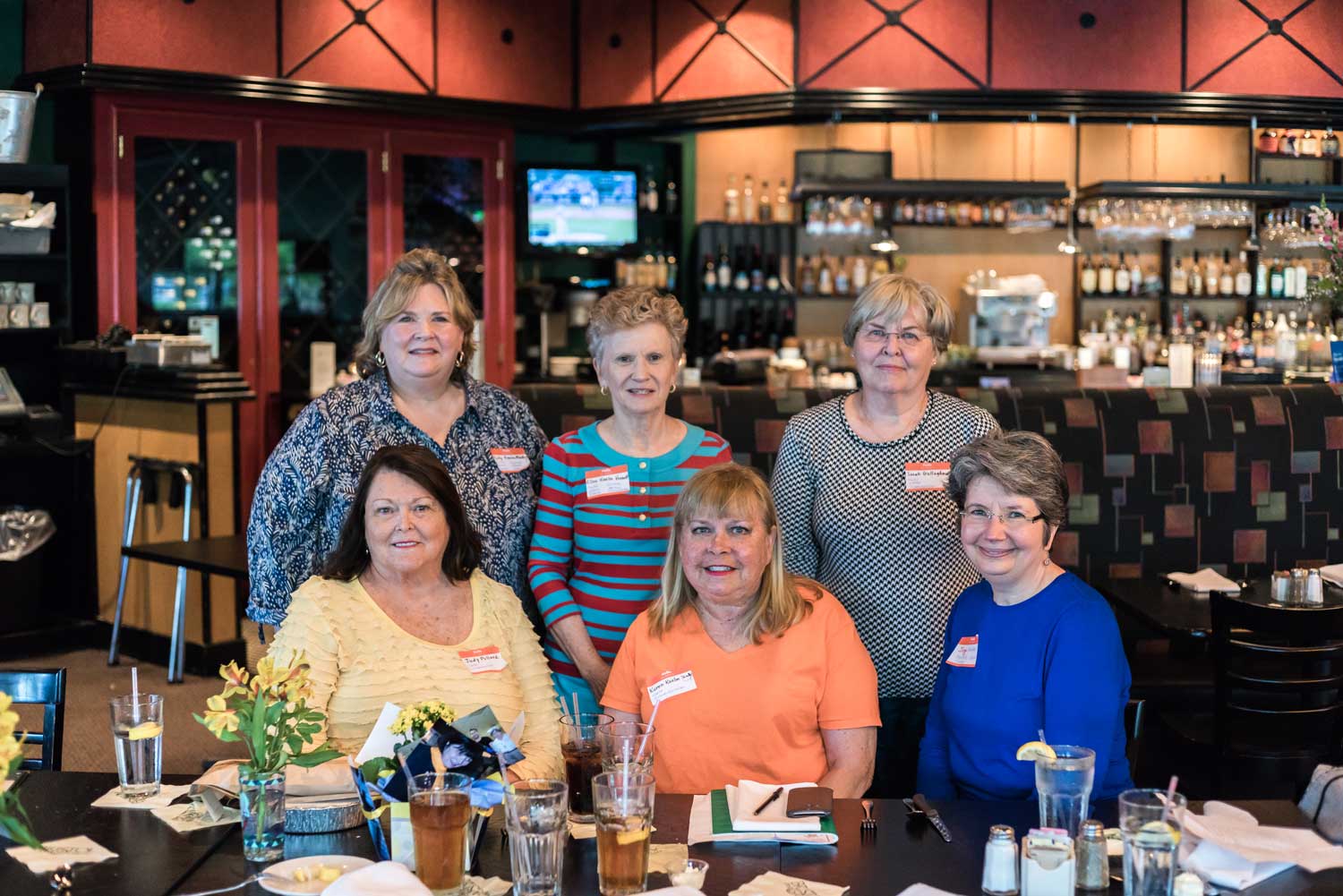
Judy Ann Pollard Kaelin, Karen Kaelin Scully, Joy Oechsli Walters, back row:
Polly Kaelin Mackey, Ellen Kaelin Venhoff, Sarah Gallagher Schoenbaechler.

